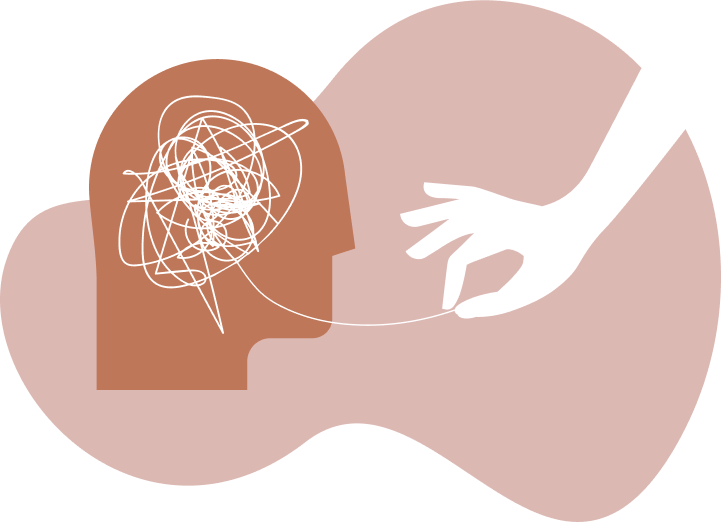How to improve sleep quality: The impact of healthy sleep on mental health

The impact of healthy sleep on mental health
Sleep is the silent architect of our mental well-being, a powerful yet often overlooked factor in maintaining psychological balance. More than just a period of rest, sleep is essential for cognitive function, emotional regulation, and overall resilience. Research has consistently demonstrated a profound link between sleep disorders and mental health problems, with conditions like depression, anxiety, and mood disorders frequently exacerbated by poor sleep patterns.
When sleep is compromised, the brain struggles to regulate emotions, process stress, and maintain focus, leading to heightened irritability, cognitive impairments, and increased susceptibility to mental health issues. Insufficient sleep also weakens the body’s ability to cope with everyday challenges, making individuals more vulnerable to anxiety and depressive symptoms. Conversely, prioritizing good sleep hygiene can significantly enhance emotional stability, stress resilience, and overall psychological well-being.
Understanding sleep Difficulties
Sleep difficulties arise from a myriad of factors, ranging from unhealthy habits and environmental disturbances to clinical sleep disorders and underlying mental health conditions. One of the most common sleep disorders, chronic insomnia, affects millions worldwide, leaving individuals trapped in a cycle of restless nights and exhausted days. Insomnia not only disrupts the sleep cycle but also amplifies stress and emotional dysregulation, making it harder to function during the day.
Other sleep disorders, such as sleep apnea and restless leg syndrome, can severely impact sleep quality by causing frequent nighttime awakenings and preventing the deep, restorative sleep necessary for mental rejuvenation. Psychological factors, including anxiety and depression, further exacerbate sleep problems, creating a vicious cycle where poor mental health contributes to sleep difficulties, and sleep deprivation worsens mental health symptoms. Identifying the root causes of sleep disturbances is crucial in breaking this cycle and developing effective treatment strategies.

Creating a sleep-conducive environment
Transforming your bedroom into a haven for restful sleep is a crucial step in improving sleep quality. The environment in which you sleep directly affects your ability to achieve deep and uninterrupted rest. To foster better sleep, consider adjusting your surroundings:
-
Eliminate Distractions: Electronic devices, such as televisions, smartphones, and computers, emit blue light that disrupts the body's production of melatonin, the hormone responsible for regulating sleep. Removing these devices from the bedroom can enhance sleep quality.
-
Optimize Comfort: A comfortable mattress and supportive pillows tailored to your sleeping position can significantly improve sleep posture and reduce discomfort that may lead to nighttime awakenings.
-
Control Light and Sound: A dark, quiet, and cool environment encourages deep sleep. Using blackout curtains, white noise machines, or earplugs can help minimize disturbances that may interrupt sleep cycles.
-
Establish a Pre-Sleep Routine: Engaging in calming activities before bed, such as reading, taking a warm bath, or practicing relaxation techniques, signals to the brain that it’s time to wind down and prepare for sleep.
Establishing a sleep routine
A consistent sleep schedule is fundamental to improving sleep quality. The human body thrives on routine, and maintaining a regular sleep-wake cycle helps regulate the circadian rhythm, ensuring that the body knows when to feel alert and when to prepare for rest.
To create an effective sleep routine:
-
Set a consistent bedtime and wake time: Going to bed and waking up at the same time each day—even on weekends—reinforces the body's internal clock.
-
Avoid stimulants before bed: Caffeine, nicotine, and heavy meals close to bedtime can interfere with the body's ability to fall asleep. Opt for light snacks if needed and avoid caffeine intake in the afternoon.
-
Limit naps: While short naps can be beneficial, excessive daytime sleep can disrupt nighttime sleep. If necessary, limit naps to 20–30 minutes and avoid napping too late in the day.
-
Engage in a aelaxing pre-sleep routine: Activities such as meditation, gentle stretching, or listening to calming music can help transition the body into a state of relaxation conducive to sleep.
Improving sleep habits
Healthy sleep habits, also known as sleep hygiene, play a significant role in achieving better sleep quality. Developing positive nighttime habits can have a profound effect on how well you sleep each night. Some key strategies include:
-
Avoiding electronic screens before bed: The blue light emitted from screens can interfere with melatonin production, making it harder to fall asleep.
-
Engaging in relaxing activities: Reading, listening to soft music, or practicing mindfulness can create a sense of calm that promotes sleep.
-
Keeping the bedroom reserved for sleep: Using the bedroom strictly for sleep and relaxation (rather than for work or entertainment) helps reinforce the association between the space and restful sleep.
-
Tracking sleep patterns: Maintaining a sleep diary can provide insight into patterns and behaviors that may be contributing to sleep problems, helping to identify necessary adjustments.
Managing stress and anxiety for better sleep
Mental stress and anxiety are two of the most common culprits behind sleep disturbances. The inability to quiet an overactive mind often leads to tossing and turning, preventing deep, restorative sleep. Learning to manage stress effectively can make a significant difference in sleep quality.
Practicing relaxation techniques before bedtime, such as deep breathing exercises, progressive muscle relaxation, or guided meditation, can help quiet racing thoughts and prepare the mind for sleep. Engaging in stress-reducing activities during the day, such as regular exercise, yoga, or journaling, can also contribute to a calmer mind at night.
If stress and anxiety persist despite these efforts, seeking professional support from a therapist or counselor can be an essential step in addressing underlying emotional distress that may be interfering with sleep.
The benefits of a good night’s sleep
Quality sleep is a cornerstone of overall health, offering numerous benefits that extend beyond simply feeling well-rested. Adequate sleep enhances cognitive function, improving concentration, memory retention, and problem-solving skills. It also plays a crucial role in emotional stability, reducing irritability, mood swings, and susceptibility to anxiety or depression.
Beyond mental well-being, good sleep supports physical health by strengthening the immune system, reducing the risk of chronic illnesses, and promoting cardiovascular health. Sleep has also been linked to improved metabolism, hormone regulation, and longevity. By prioritizing restful sleep, individuals can significantly improve their quality of life and mental resilience.
Seeking help for sleep-related health problems
For those experiencing persistent sleep difficulties, seeking professional help is crucial. A healthcare provider or sleep specialist can conduct thorough assessments to determine whether underlying medical or psychological conditions are contributing to sleep disturbances. Cognitive behavioral therapy for insomnia (CBT-I), a highly effective treatment approach, can help individuals identify and change behaviors that hinder sleep.
Additionally, medical interventions may be necessary for conditions such as sleep apnea, restless leg syndrome, or other sleep disorders that require specialized treatment. Working with a healthcare provider to develop a personalized sleep improvement plan is a proactive step toward achieving better rest and overall well-being.
Conclusion
Prioritizing sleep is an essential investment in both physical and mental health. By fostering a sleep-conducive environment, establishing consistent sleep routines, improving sleep hygiene, and managing stress effectively, individuals can experience significant improvements in sleep quality. Seeking professional help when needed ensures that underlying sleep disorders or mental health conditions are addressed appropriately. In a world that often undervalues rest, embracing the power of sleep can be transformative, paving the way for a healthier, more balanced life.
Amira Khan
Mental health advocate at Thera
Tags:





